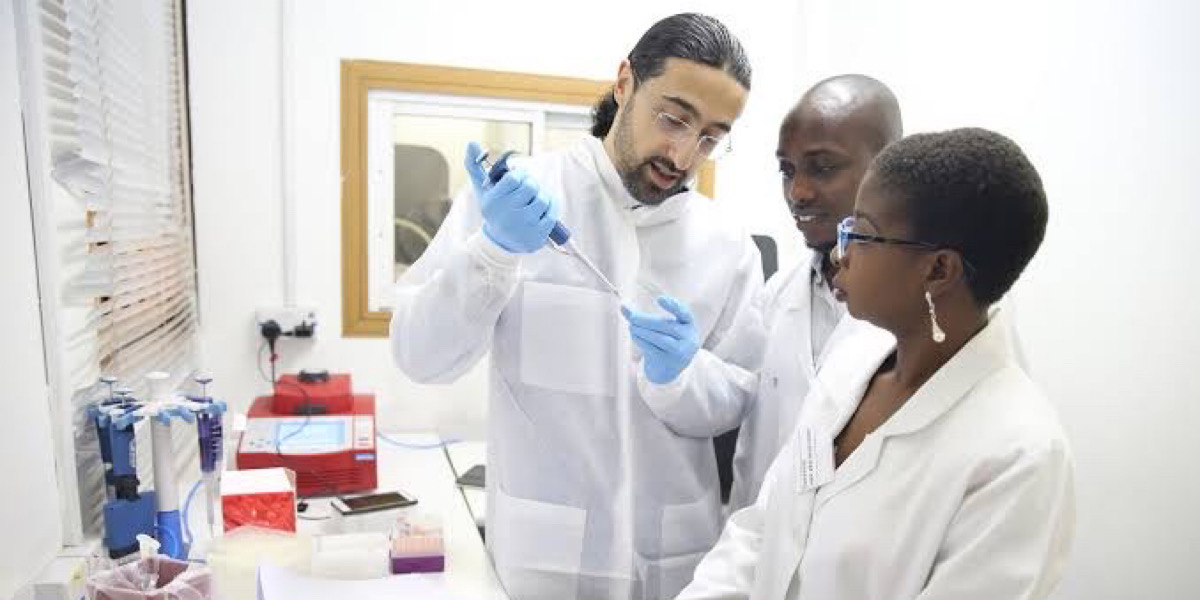The Institute of Human Virology, Nigeria (IHVN), says its International Research Center of Excellence has emerged as a leader in addressing critical health challenges such as HIV, tuberculosis (TB), and other infectious diseases.
Prof. Alash’le Abimiku, Executive Director, IHVN, said this while speaking to newsmen on Tuesday in Abuja, in commemoration of the institutes 20 Years of Excellence in Public Health Implementation, Capacity Building and Research in Nigeria.
Abimiku said that the institute and the
centre had forged a collaborative path that was not only aimed at enhancing medical research, but also aimed at strengthening the healthcare infrastructure in Nigeria.
She highlighted the pivotal role of IHVN in fostering local healthcare solutions.
She recounted the early involvement of HIV discoverer, Robert Gallo, who visited Nigeria twice, stressing the importance of establishing services, capacity building, and training in the country.
“If we do not take care of a country like Nigeria, Africa is probably not going to succeed in reinforcing the urgency of local health interventions,” she said.
According to her, IHVN’s multifaceted approach includes the establishment of specialised facilities for handling complex health issues.
“Notably, the centre set up Nigeria’s first Biosafety Level three laboratory at the National TB Reference Center in Zaria, Kaduna State to combat the threat of extensively drug-resistant TB (XDR TB).
“We train individuals to process sputum and monitor the entrance and spread of this extremely resistant TB,” she said,
She highlighted the centre’s commitment to safeguarding public health.
“Research at IHVN is not limited to HIV and TB.
“The institute is actively exploring diagnostic methods tailored for pediatric populations, recognising the unique challenges faced in diagnosing infections in infants,” she said.
Furthermore, she said that IHVN was at the forefront of monitoring circulating pathogens to prepare for potential outbreaks, a strategy that gained significance during the COVID-19 pandemic.
She also announced IHVN’s groundbreaking participation in HIV vaccine research, marking Nigeria’s entry into a vital area of global health innovation.
“We are the only country in West Africa currently involved in identifying an effective HIV vaccine,” she said.
She underlined the need for solutions that consider the specific strains of HIV prevalent in the region.
Beyond infectious diseases, she said that there was a rising prevalence of non-communicable diseases, including diabetes and cardiovascular diseases, among younger populations.
. “Our research points to the fact that younger individuals are increasingly facing these health challenges,” she said,
Abimiku called for a comprehensive approach to health that encompassed all aspects of patient care.
As IHVN continues to expand its research portfolio, including ongoing studies on sickle cell disease and cancers, she reiterated the importance of collaboration with governmental agencies and other organisations.
“We are part of a network that tests new drugs and therapies, ensuring that our findings translate into actionable health policies,” she said.
She highlighted IHVN’s dedication to fostering a robust health research environment in Nigeria.
As Nigeria navigates its complex health landscape, the IHVN boss said that the institute’s efforts served as a beacon of hope and a model for future healthcare innovations in Africa.
The News Agency of Nigeria (NAN), reports that IHVN was incorporated in October 2004.
It started with the implementation of a grant by Professor William Blattner, who was the Director of the Epidemiology Division of the University of Maryland, Baltimore’s Institute of Human Virology.
The Institute was established to outlast the grant and address the HIV/AIDS crisis in Nigeria by developing infrastructure for treatment, care, prevention, and support for people living with and affected by HIV.
IHVN has expanded its services to other infectious and non-infectious diseases as it continues to provide quality health services and capacity building.
Since 2004, IHVN has provided HIV testing services to more than 18 million people, and life-saving antiretroviral treatment to more than 600,000 people.
It has trained over 50,000 healthcare workers and provided tuberculosis services to more than 300,000 individuals.
As the Institute commemorates this milestone, it said that some of its achievements could only be described in terms of beneficiaries that have come under its support.
It added that the organisation had utilised financial support from funding agencies and partnerships with all levels of government, the public and private sector, to put smiles on the faces of many.
It commended the staff for their support, the University of Maryland for its technical guidance, and stakeholders for their collaboration.
It called for continued partnership in addressing the health needs of many more people in Nigeria and West Africa.

